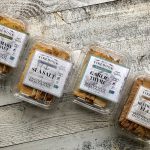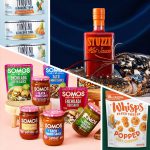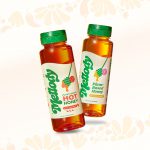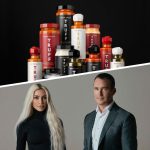Kellogg and Mondelez Talk Leadership Changes and Fighting Slumps
Though center store sales are still slow for both The Kellogg Company and Mondelez Inc., the CPG leaders posted their first revenue growth in years on Tuesday during their respective quarterly earnings calls.
While part of the growth is a result of the value of the dollar overseas, part of the success is due to how the two brands are innovating and strategizing to better fit how consumers are now shopping for and interacting with their products. With both companies now under new leadership, more strategic changes are expected to come in the year to come.
Here are the main takeaways from Kellogg’s and Mondelez’s earnings calls.
Kellogg Talks Strategies to Attract Adults Back to Cereal Category
Kellogg’s new CEO Steve Cahillane is looking to reinvigorate the company’s slumping categories, like better-for-you breakfast cereals and bars, through innovation and investments.
Despite overall increased earnings, U.S. net sales in morning foods and snacks continued on a downward trend. Cereal consumption, especially within the health and wellness segment, also remained soft.
To “get back on track amidst a very challenging industry environment,” Cahillane said the company is taking steps around cost structure and emerging market scale to see overall success. Cahillane, who has been with the company for only a month, follows John Bryant, who served as CEO for seven years and has 20 years with the company.
The first step in this plan was Kellogg’s $600 million purchase of Chicago Bar Company, makers of the RXBAR clean-label protein bars. Helping with the bottom line, Bryant noted the brand’s sales are expected to quadruple in 2017.
“The entire organization is hungry to get back to growth, and it’s open to new ideas. For instance, our 1894 venture capital fund invests in early stage technology and food businesses. We’ve been experimenting with direct-to-consumer for our Bear Naked brand, and we’re learning from the pop-up cafes we’ve opened up around the world,” Cahillane said. “And as evidenced by the acquisition of RXBAR, we’re even willing to acquire growth. This is not a company that’s sitting on its hands.”
The company also noted it needs to stabilize its current health and wellness portfolio, especially in regard to cereal geared toward adults. During the call, Cahillane company announced that it will be launching a Special K with probiotics, as well as a more fruit-forward Raisin Bran. Both innovations embrace a focus on digestive health and convenience.
“I believe gut health and science is coming back to nutrition and nutrition in the cereal category,” Cahillane said. “We’re well placed as a category to actually find tailwinds in nutrition in the months and years to come. It’s good for cereal and it’s good for our emphasis on health and wellness… The critical thing, though, is finding great commercial ideas, renovation and innovation that can bring to life those trends in unique ways for our brands. Our portfolio and our category is uniquely placed to do that. It’s incumbent on us to do it. So that’s really where our focus is.”
Mondelez Credits Quarterly Growth to Snacking and E-Commerce
Mondelez’s focus on snacks is showing some promise, according to the company’s Monday quarterly earnings call.
In North America, sales rose 1.3 percent, a positive sign for the CPG leader that has seen struggles in the challenging retail environment.
The call follows recent executive changes coming to the company in the near future. Rosenfeld, who is stepping down as CEO at the end of this month, has led the global snack powerhouse since 2012 when it was spun off from Kraft.
During the call with investors, Rosenfeld acknowledged that the only region performing below expectations was North America. The U.S. business has been struggling as center store continues to slump and consumers continue to favor fresh. To counter this, Mondelez has introduced new brands like Véa crackers and belVita breakfast cookies and protein biscuits. Playing to cleaner labels and certifications, the company also announced earlier this fall that its entire line of Triscuit snack crackers became Non-GMO Project Verified.
“We think we’re pretty well positioned to begin to capitalize on the opportunity in North America,” Rosenfeld said on the call. “We’ve got a number of investments that are starting to come into the marketplace. So we have a number of the elements that are starting to come together and we are quite optimistic as we look to the fourth quarter and then out into our 2018.”
Part of this optimism is rooted in the company’s health initiatives. In an effort to become “the leader in well-being snacks” by 2020, the company has committed to attaining 25 percent of its revenue through sales of its “well-being choice” products. To achieve this goal, Mondelez is evolving its current product offerings through expanded portion control options, sodium and saturated fat reductions and front-of-pack calorie labeling.
Rosenfeld said she also is confident in the company’s future success because of her team’s ability to build a budding e-commerce snacks business.
“As I have witnessed the evolution of the industry they have been cosmic changes every couple of years throughout that tenure, whether you think about the advent of the supercenter, you think about the beginning of the rise of e-commerce,” she said. “I do think companies have to take those cosmic changes quite seriously… We’ve seen a fairly sizable evolution in our industry over the last decade and the winners have adapted to it accordingly.”














